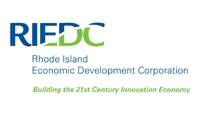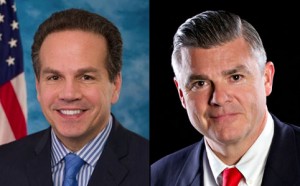 As we think about the potential debacle that 38 Studios represents, it’s worth putting a quarter into the time machine and revisiting some great moments in EDC history.
As we think about the potential debacle that 38 Studios represents, it’s worth putting a quarter into the time machine and revisiting some great moments in EDC history.
This is from a 2009 column I wrote about EDC (link – scroll down to “EDC: What’s the point?”). A report had just come out scolding EDC’s performance, and this was my review of that report.
But what of EDC itself? The panel complained they were without focus, and alternately complained they didn’t spend enough time working with already-existing local companies and that they don’t have a good marketing approach to attract companies from elsewhere. So which one should the refocused EDC take on? Both, says the panel. That will sure improve the focus, won’t it?
Some background you might not remember: Back in the misty dawn of time, EDC was born as the RI Port Authority and tasked with issuing bonds to develop and preserve the Port of Providence. When the Navy pulled out of Quonset, the Authority’s authority expanded there. Then, in 1995, when Governor Almond decided that the state’s economic development apparatus should no longer be a department of the state, he laid off the entire department, and transformed the Port Authority into EDC.
Why the Port Authority? Simple. Almost alone among state agencies the Port Authority had been granted unlimited borrowing authority when it was formed, which EDC inherited. And borrow they have, for good and for, well, less good. They blew $30 million on Alpha-Beta, a bio-tech flop, and EDC’s authority was a pivotal part of the deal that allowed state debt to balloon in order to pay for the I-boondoggle rearrangement of Route 195. There’s plenty more, including $14 million for the Masonic Temple hotel project, and $30 million for the troubled Wyatt jail in Central Falls.
What’s more, freed from the state personnel system, EDC was free to pay its executives whatever they please, and to conduct their business however they pleased. Their executives could wear good suits, house their operation in first-class office space, and generally conduct themselves just like the overpaid CEOs they spend their time with.
This isn’t to say EDC hasn’t done some good. I’ve written approvingly about the geek dinners they promoted under Saul Kaplan, its last director, and there have been other networking initiatives that bore some fruit, too. But let’s be honest. What’s the point of EDC at all? In large part, the best things the state can do for the state’s economy have to do with those essential things that the private sector can’t (or won’t) do: universal public education; maintaining roads, bridges, water lines and the like; policing the marketplace; protecting the environment; facilitating grant-funded research. These are the factors that could make ours a stronger economy. What an EDC can do will only ever be a minor effect compared to these others.
This, of course, is a political problem for the agency because expectations are so much higher than can be achieved.
What happens at an agency with such an ill-defined and difficult role? Failure, that’s what. Over the years, EDC has seen some good people come through its doors (along with the inevitable few who only look good in a suit) but they’ve been tasked with the impossible. Their mission has been to make our state’s economy bloom despite the fact that we are shrinking our investments in our infrastructure, our workforce and our environment. And what have we seen? Tremendous pressure to do something has produced ill-considered loans, and nebulous and occasionally laughable plans.
A future EDC or something like it could play a useful part in monitoring the state’s economy, and in technology transfer, trying to push new technologies into the market to advantage local businesses. They could be useful promoting networking and centralizing some information businesses need. But our EDC has served mostly as an ATM for corporations, and as a state-paid corporate lobbyist, pushing tax cuts in the legislature, oblivious to the effects these cuts have had on permitting delays, to say nothing of education and bridge maintenance. The agency needs to be rethought, but the changes must go a lot farther than this panel envisions.







